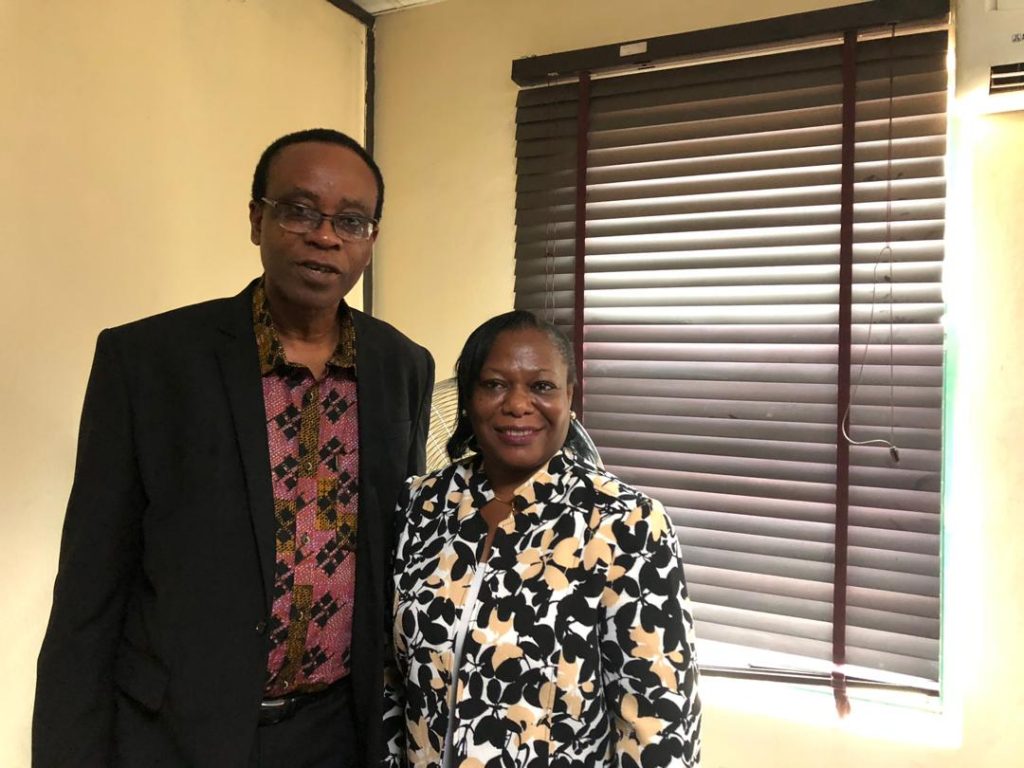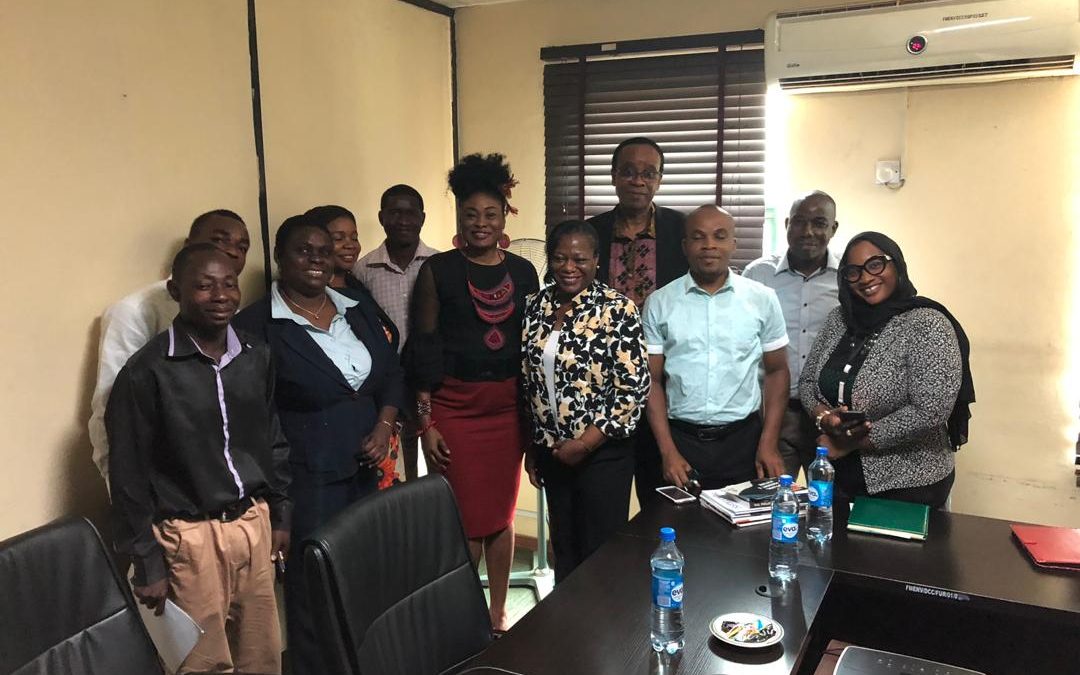Health of Mother Earth Foundation (HOMEF) on 13th May 2019 met with officials at the Climate Change Department of the Federal Ministry of Environment in a roundtable session to discuss HOMEF’s concerns about Geoengineering (GE). HOMEF had on the 25th of February, 2019, sent a letter of concern to the Minister of Environment and was invited through the Director of the Climate Change Department, Dr. Yerima P. Tarfa for this important dialogue.
The Dialogue aimed to examine and provide better understanding of Nigeria’s national position on geoengineering and came on the heels of the 3rd session of the open-ended working group (OWG) of the Global Environment Pact that will take place between the 20th – 22nd of May 2019, at the United Nations Environment Programme (UNEP), Nairobi, Kenya.
In the course of the Dialogue, Nnimmo Bassey, the Director of HOMEF spoke on Geoengineering and Nigeria. He acknowledged that science is useful when it responds to societal issues but that often times, scientists take a peculiar or esoteric position making discussions around important subjects difficult. He stressed that “Although geoengineering is part of the responses to cutting down on the impacts of climate change it does not address the root causes of the problem”.
Geoengineering is basically defined as the intentional large-scale technological manipulation of earth systems(including the stratosphere and oceans) in an attempt to delay or reduce climate change. According to Bassey, “there have been a number of computer models of GE experiments and most of the models show that the impacts will be worst on Africa and other regions in the Global South. We are either going to have more droughts or more floods.”
It was said that there are three main categories of geoengineering: Greenhouse Gas and Carbon Dioxide Removal, Solar Radiation Management and Weather Modification. It was explained that some of the techniques include ones aimed at absorbing carbon from the atmosphere or planting trees, especially of genetically modified species to reflect sunlight or to absorb more carbon.
Among many other technologies, Ocean Fertilization was said to be used in interventions in marine ecosystems and it has potential impacts such as:disturbance of marine food web; worsening of ocean acidification; production of toxic algal blooms; hypoxia / anoxia in deeper layers of the ocean; production of harmful gases such as dimethylsulphide (DMS) and commercial exploitation
It was also stated that since the year 2008, ocean fertilization has been under a moratorium in the Convention on Biological Diversity (CBD). The London Convention called for utmost precaution since 2007 and in 2013 took a decision to ban all forms of marine geoengineering except small scale experiments for scientific purposes only which has very stringent protocol.
While HOMEF is not opposed to science or experimentations, what they ask for caution. An example of the nuclear weapons that were tested in the Pacific was given and it was pointed out that the impact of the nuclear radiation from those tests in communities where they were used are still being felt. Geoengineering can only be implemented in vast scales and the impacts will not be benign.
Other risks associated with geoengineering include: inequality, global power imbalances, environmental hazards, disruption of food chain, land grabs and intergenerational injustice. It was also noted that huge amounts of research funds will go into GE once it is approved and other areas that need research will suffer.
In conclusion, Nnimmo stressed that it is best to ban geoengineering. He said: “we need to see how we can take our nation forward and safeguard the interest of our people. Protect the atmosphere, our oceans, our rivers and our land. He pointed the Department of Climate Change to some resources they can access online on the topic -links to ETC Group and HOMEF’s web page:
The Deputy Director of the Department, Mrs Abiola-Awe, after HOMEF’s presentation, thanked the organization and stated on behalf of the team that they were reminded of the key issues pertaining to geoengineering and challenged at the same time. The presentation provided information that better equipped the department to make precise decisions, especially as Nigeria has committed to emissions reduction through her Nationally Determined Contributions in line with the Paris Agreement. She said Nigeria has committed herself to 20% unconditional emissions reduction and an additional 25% to be achieved with international support.
Mrs Abiola-Awe said there was also the issue of the oil spills in Nigeria and there are no international laws or environmental laws that support activities around those kinds of issues. She said the oil issue and GE were the two big issues that need urgent intervention. According to her, they need to put officers in place in their two strategic department-the Greenhouse Gas Emissions Division and the Mitigation Division. “The discussion is about mitigation, but you cannot mitigate what you do not have a gauge of,” she stated. She concluded by assuring HOMEF that the department was open for collaborations and further communications on subjects of mutual interest.
The Department of Climate Change was represented by a wide range of scientists with expertise in their fields. As expected, the discussions were interactive and robust.






